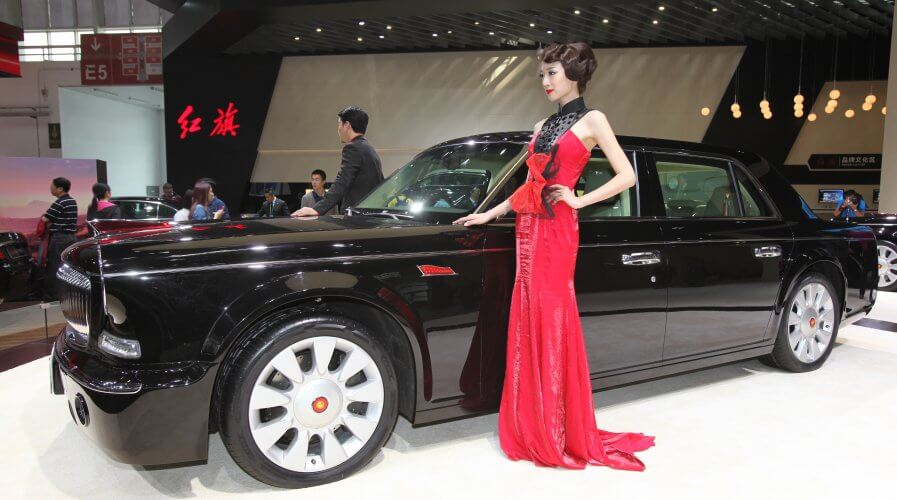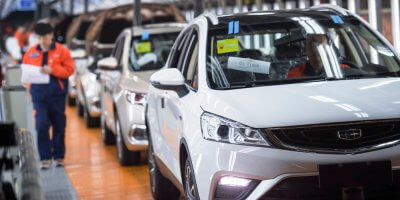
(FIle) Models pose with a Hongqi L5 car on display at the China International Exhibition Center new venue during the “Auto China 2014” Beijing International Automotive Exhibition in Beijing on April 20, 2014. Source: AFP
Mao’s Red Flag car is going the autonomous route
READY, set, go! The race to launch completely autonomous vehicle is heating up.
Within days of Waymo announcing that its driverless car project got the green light in California, China had its own announcement to make. The country’s tech giant Baidu recently revealed that it will roll out a fully autonomous passenger car next year.
And it is not just any car. It is partnering with Hongqi — also known as Red Flag — an iconic luxury car brand that is preferred by the ruling elite of communist China.
China FAW Group Corp Ltd currently owns Hongqi.
The country’s former leaders Mao Zedong and Deng Xiaoping rode the car in the1960’s and 1970’s.
Baidu said that a pilot operation will produce a limited number of “fully automated level four” Hongqi vehicles next year, and that it expects to a commercial launch in 2020.
“Level four vehicles operate autonomously with no human intervention in most conditions”, Baidu CEO Robin Li explained to Reuters.
The company, often drawing the comparison with Google, is no stranger in the autonomous vehicle industry, having launched self-driving busses and trucks in the past.
However, the driverless Hongqi car for public use marks a major milestone in the industry.
Baidu is one of the four companies that were named by the government to spur China’s AI development, and by far, is leading the country’s effort to build autonomous vehicles.
It works with China’s largest cities to build infrastructures that will facilitate autonomous vehicles and smart public transport technology.
The company had previously agreed to develop self-driving vehicles with Chinese owned Volvo Car, and on Wednesday revealed a tie-up with Ford Motor Co to test autonomous vehicles in China.
Originally built for China’s leader Mao in the 1960’s, Hongqi literally means “red flag” and was reserved only for officials and dignitaries. The car itself oozed and symbolized the power of the Chinese Communist Party.
Having announced its goal to become a dominant player in global AI technologies a few years ago, China has made significant progress.
The Commercial Aircraft Corporation of China (COMAC), China’s state-owned aircraft manufacturer, for example, recently announced the launch of an innovation center for AI to facilitate “in-depth application of AI technologies” in passenger aircraft.
Chinese President, Xi Jinping continues to tirelessly encourage the country to achieve an in-depth understanding of AI and recently called for the technology to be “deeply integrated” with China’s economic and social developments.
His calls, obviously, aren’t falling on deaf ears. If the Baidy and Hongqi announcement was of any indication, the country is not only on course to launch its own autonomous cars but also intends to roll them out in style.
READ MORE
- The criticality of endpoint management in cybersecurity and operations
- Ethical AI: The renewed importance of safeguarding data and customer privacy in Generative AI applications
- How Japan balances AI-driven opportunities with cybersecurity needs
- Deploying SASE: Benchmarking your approach
- Insurance everywhere all at once: the digital transformation of the APAC insurance industry






